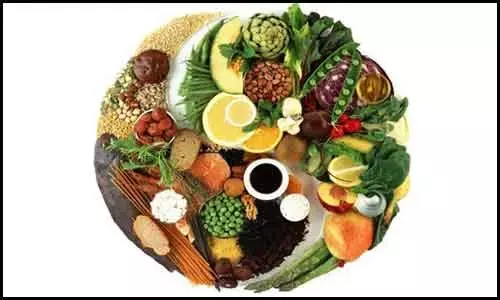- Home
- Medical news & Guidelines
- Anesthesiology
- Cardiology and CTVS
- Critical Care
- Dentistry
- Dermatology
- Diabetes and Endocrinology
- ENT
- Gastroenterology
- Medicine
- Nephrology
- Neurology
- Obstretics-Gynaecology
- Oncology
- Ophthalmology
- Orthopaedics
- Pediatrics-Neonatology
- Psychiatry
- Pulmonology
- Radiology
- Surgery
- Urology
- Laboratory Medicine
- Diet
- Nursing
- Paramedical
- Physiotherapy
- Health news
- Fact Check
- Bone Health Fact Check
- Brain Health Fact Check
- Cancer Related Fact Check
- Child Care Fact Check
- Dental and oral health fact check
- Diabetes and metabolic health fact check
- Diet and Nutrition Fact Check
- Eye and ENT Care Fact Check
- Fitness fact check
- Gut health fact check
- Heart health fact check
- Kidney health fact check
- Medical education fact check
- Men's health fact check
- Respiratory fact check
- Skin and hair care fact check
- Vaccine and Immunization fact check
- Women's health fact check
- AYUSH
- State News
- Andaman and Nicobar Islands
- Andhra Pradesh
- Arunachal Pradesh
- Assam
- Bihar
- Chandigarh
- Chattisgarh
- Dadra and Nagar Haveli
- Daman and Diu
- Delhi
- Goa
- Gujarat
- Haryana
- Himachal Pradesh
- Jammu & Kashmir
- Jharkhand
- Karnataka
- Kerala
- Ladakh
- Lakshadweep
- Madhya Pradesh
- Maharashtra
- Manipur
- Meghalaya
- Mizoram
- Nagaland
- Odisha
- Puducherry
- Punjab
- Rajasthan
- Sikkim
- Tamil Nadu
- Telangana
- Tripura
- Uttar Pradesh
- Uttrakhand
- West Bengal
- Medical Education
- Industry
Dietary habits may influence oxidative stress markers in Hashimoto`s Thyroiditis: Study

Increasing awareness that nutritional habits may influence risk of several inflammatory and immune-mediated disorders, including autoimmune diseases, through various mechanisms.
Therefore, Rosaria Maddalena Ruggeri and colleagues from the Department of Clinical and Experimental Medicine, University of Messina, Messina, Italy conducted this study with the sole aim to investigate dietary habits and their relationship with redox homeostasis in the setting of thyroid autoimmunity.
A total of two hundred subjects including 173 females and 27 males with a median age of 37 years were enrolled in the study. Among the 200 recruited subjects, 81 (71 females and 10 males) were diagnosed with euthyroid Hashimoto's thyroiditis (HT); the remaining 119 (102 females and 17 males) served as controls. None were under any pharmacological treatment. Exclusion criteria were any infectious/inflammatory/autoimmune comorbidity, kidney failure, diabetes, and cancer. In each subject, serum thyrotropin (TSH), free thyroxine, antithyroid antibodies, and circulating oxidative stress markers were measured. A questionnaire on dietary habits, evaluating the intake frequencies of food groups and adherence to the Mediterranean diet, was submitted to each participant.
The following results were observed-
a. In questionnaires, HT subjects reported higher intake frequencies of animal foods (meat, p = 0.0001; fish, p = 0.0001; dairy products, p = 0.004) compared with controls, who reported higher intake frequencies of plant foods (legumes, p = 0.001; fruits and vegetables, p = 0.030; nuts, p = 0.0005).
b. The number of subjects who preferentially consumed poultry instead of red/processed meat was lower in HT subjects than in controls (p = 0.0141). In logistic regression analysis, meat consumption was associated with increased odds ratio of developing thyroid autoimmunity, while the Mediterranean diet traits were protective.
c. In HT subjects, serum advanced glycation end products (markers of oxidative stress) were significantly higher (p = 0.0001) than in controls, while the activity of glutathione peroxidase and thioredoxin reductase, as well as total plasma antioxidant activity, were lower (p = 0.020, p = 0.023, and p = 0.002, respectively), indicating a condition of oxidative stress.
d. Stepwise regression models demonstrated a significant dependence of oxidative stress parameters on consumption of animal foods, mainly meat.
Hence, the authors concluded that "there is a protective effect of low intake of animal foods toward thyroid autoimmunity and a positive influence of such nutritional patterns on redox balance and potentially on oxidative stress-related disorders."
Dr. Nandita Mohan is a practicing pediatric dentist with more than 5 years of clinical work experience. Along with this, she is equally interested in keeping herself up to date about the latest developments in the field of medicine and dentistry which is the driving force for her to be in association with Medical Dialogues. She also has her name attached with many publications; both national and international. She has pursued her BDS from Rajiv Gandhi University of Health Sciences, Bangalore and later went to enter her dream specialty (MDS) in the Department of Pedodontics and Preventive Dentistry from Pt. B.D. Sharma University of Health Sciences. Through all the years of experience, her core interest in learning something new has never stopped. She can be contacted at editorial@medicaldialogues.in. Contact no. 011-43720751
Dr Kamal Kant Kohli-MBBS, DTCD- a chest specialist with more than 30 years of practice and a flair for writing clinical articles, Dr Kamal Kant Kohli joined Medical Dialogues as a Chief Editor of Medical News. Besides writing articles, as an editor, he proofreads and verifies all the medical content published on Medical Dialogues including those coming from journals, studies,medical conferences,guidelines etc. Email: drkohli@medicaldialogues.in. Contact no. 011-43720751


